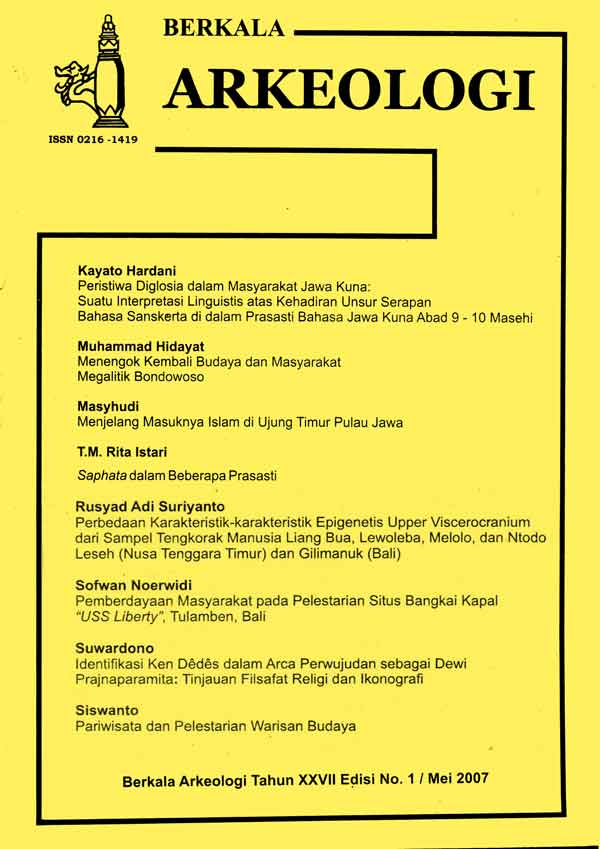PARIWISATA DAN PELESTARIAN WARISAN BUDAYA
Main Article Content
Abstract
The development paradigm in many countries is now more oriented towards the development of the service sector and industry, including the tourism industry. Likewise in Indonesia in the last three decades the tourism sector has been encouraged and responded positively by the government with the hope of replacing the oil and gas sector which has been the prima donna in the country's foreign exchange earnings. The tourism sector is promising enough to help increase foreign exchange reserves and also pragmatically to increase people's income. The national situation is now beginning to show progress towards stability, especially in the political and security fields will provide assurance of confidence for foreign tourists to enter Indonesian territory.
Article Details

This work is licensed under a Creative Commons Attribution-NonCommercial-ShareAlike 4.0 International License.
References
Anonim, tt. Pembangunan Berwawasan Budaya - Paradigma dan Pokok-pokok Program Aksi. Kementerian Kebudayaan dan Pariwisata - Universitas Gadjah Mada.
Anonim, tt. Kode Etik Pariwisata Dunia (Global Code of Ethics For Tourism). Jakarta: Kementerian Kebudayaan dan Pariwisata RI.
Anonim, 2004. Profil Kementerian Kebudayaan dan Pariwisata Tahun 2004. Jakarta: Kementerian Kebudayaan dan Pariwisata RI.
Anonim, 2005. Rencana Strategis Departemen Kebudayaan dan Pariwisata. Jakarta: Departeman Kebudayaan dan Pariwisata.
Hall, Colin Michael, 1999. Tourism and Pilitics: Policy Power and Place. New York - Brisbane - Toronto - Singapore: John Wiley & Sons.
Mowforth, M. and Ian Mount. 1998. Tourism and Sustainability – New Tourism in the Thirth World. London and New York.Routledge Publisher.
Sheldon. Pauline J. (ed.) 2001. Information and Communication Technology in Tourism 2001. Springer Verlag Wien. New York. Printed in Austria.

